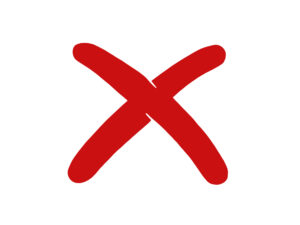How ethical and sustainable is Habitat?
Habitat is included in The Good Shopping Guide’s Furniture Ethical Ratings Table. The brand has yet to meet our ethical standards, but we believe that in the future, the brand will make the necessary changes to function as a more ethical and sustainable organisation. Habitat would be able to increase consumer and investor trust and boost its ethical standing by applying for Ethical Accreditation, which would include a more complete examination, consultancy and suggestions for ethical development.
More information on the best sustainable furniture may be found in The Good Shopping Guide to Ethical Furniture. Then, in our Furniture Ethical Ratings Table compare Habitat to other suppliers.
What does Habitat do?
Habitat was founded in 1964 providing different furniture options to customers ,ranging from duvets to flat-pack furniture. In 2017 Habitat joined the Sainsbury’s group and in 2018 it opened two new flagship stores in Brighton and London. Habitat not only sells furniture but also other household items such as dinner sets and cookware.
For which criteria does Habitat perform poorly?
Habitat received a low rating for Animal Welfare concerns and Human Rights concerns due to its parent company. The abusive treatment of hens that Sainsbury’s has been accused of is the cause of the low Animal Welfare score, which affects the reputation of the brands held by J Sainsbury Plc. Sainsbury’s has come under fire for a number of things, including an Observer investigation that showed the company’s hiring agency is withholding salaries.
Past Criticisms of Habitat’s ethical record
Habitat’s parent company, Sainsbury’s, came under fire from Greenpeace for failing to limit the quantity of plastic garbage it generates. Out of the top 10 UK supermarkets, Sainsbury’s has made the least amount of improvement.
In what areas does Habitat score well for its ethics?
Habitat receives a high score for its Environmental Report, Timber Sourcing Policy, a lack of investment in Nuclear Power, Fossil Fuels, Armaments and Political Donations among other things. Sainsbury’s has a report including targets on becoming Net Zero and Plastic packaging as well as providing evidence of improvement in all of these areas. Sainsbury’s also has a CDP Forests Disclosure document stating that 93% of the wood used in its timber products is either Recycled, or FSC or PEFC certified.
How can Habitat improve its Ethical Rating?
The Ethical Rating of a brand is divided into three categories by The Good Shopping Guide: the Environment, People and Animals.
Habitat could apply for Ethical Accreditation for more detailed guidance on how to improve its ESG and CSR policies.
Habitat may improve its Ethical Rating and fulfil our fundamental ethical requirements by improving the treatment of workers and animals within its parent companies supply chain.
Why not check out The Good Shopping Guide’s Ethical Accreditation if you work for or with a Furniture company that values ethics and sustainability in its business practices?
Get in touch with us to learn more, or complete our short form for an initial sustainability evaluation.
Ethical performance in category
GSG score
GSG category benchmark
Ethical Rating
Environment
-
Environmental Report
Good
-
Nuclear Power
Good
-
Timber Sourcing Policy
Good
-
Fossil Fuels
Good
Animal
-
Animal Welfare
Poor
People
-
Armaments
Good
-
Political Donations
Good
-
Human Rights
Poor
-
Human Rights+
Poor
Other
-
Ethical Accreditation
Poor
-
Other Criticisms
Poor
= GSG Top Rating = GSG Middle Rating = GSG Bottom Rating
